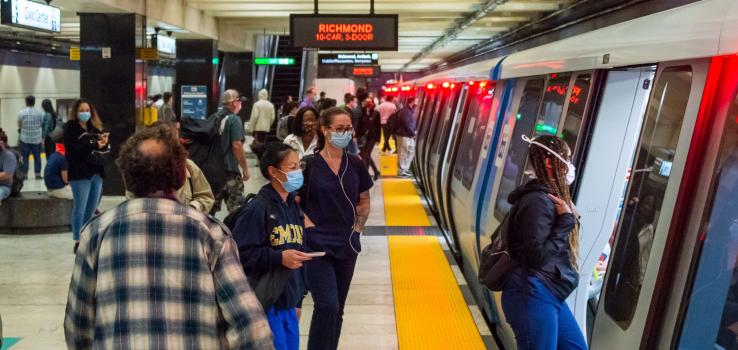
Transportation
and best ways to get around for people of all ages and abilities.

• Reduce emissions from transportation.
• Reduce driving.
• Build complete communities around transit.
• Make Bay Area transit work for the 21st century.
• Eliminate traffic deaths.